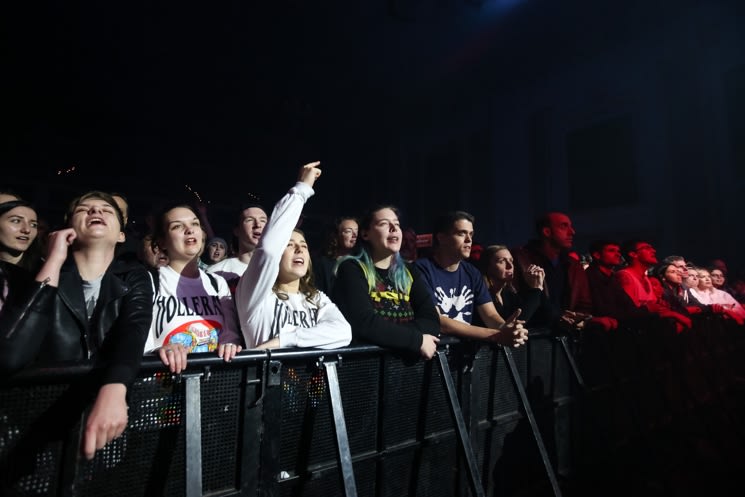Even before Donald Trump's threats against Canada, the border may have caused at least one concert cancellation in Toronto.
Jhené Aiko waited at the Scotiabank Arena on July 2, 2024. She'd played the Barclays Center in New York the night before and needed production gear to arrive for a performance that evening. With only 20 minutes before doors were set to open, a time which had been pushed back twice, Aiko announced via social media the show was off, citing "production issues."
Ticketholders learned the news while lined up outside. Some blamed the tight schedule between tour dates in New York and Toronto: there wasn't enough time for possible delays in clearing customs.
Aiko's production team didn't admit the border was specifically the issue, but they did release a statement to media putting the blame on "a significant delay in tour production arriving into Toronto."
Others blamed what's come to be known as the "Toronto curse," an idea that first appeared after a run of high-profile concert cancellations in the city — including Justin Bieber and the Weeknd — two years earlier during the summer of 2022.
It was a unique moment in the industry. Live music was roaring back to life after a couple years of pandemic-era shutdowns, restrictions and false starts. Fans were full of pent-up demand. They seemed to start feeling cancellations, which have always been a part of the industry, more acutely.
In addition to the sense of having missed out during the pandemic, another reason for the increasing bad vibes around cancellations was the rising cost of tickets.
Especially when fans travelled and shelled out for a hotel, a cancellation meant a lot of money for nothing. And with inflation, people had less discretionary spending cash to begin with.
But many fans still chose to buy whatever tickets they could, and certain parts of the live music industry did extremely well through 2023. Live Nation, for example, made record revenue that year. There was still some talk of the Toronto curse — SZA cancelled a show last-minute due to illness — but it wasn't really in the news.
Then came 2024.
About six weeks before Jhené Aiko's production issues, Cindy Lee cancelled a show in Toronto because of exhaustion.
A little later in the summer, ScHooboy Q and SiR cancelled shows. These two appeared to have had a unique cause: the artists' associations with Kendrick Lamar during the Drake–Lamar beef, with each rapper booked to play at History, the venue co-founded by Drake.
I missed out on a live performance myself when Charlotte Cardin couldn't make her Polaris Gala set in September because of COVID.
And Clairo postponed three shows from October to December because the gruelling nature of touring had worn her down and she didn't feel confident she could deliver the kind of performances her fans deserved.
"It's an incredibly hard job," music promoter Denholm Whale tells me of being a touring musician. Whale had booked Cindy Lee's cancelled show.
Whale also points out that some artists appear to be experiencing a rightsizing of sorts after the early post-lockdown exuberance to get out and hear music. Artists sometimes can't sell the number of tickets they did during a brief golden era — especially in a city like Toronto with an increasing cost of living. Their productions aren't easy to scale down, and they can't make the economics work on the production costs unless they fill large venues. They also don't like the optics of moving to a smaller venue, so they cancel shows outright.
But the biggest issue on the horizon for the Toronto curse is the developing economic tension between Canada and the US.
As has been making news around the world, Donald Trump has promised extensive tariffs on Canadian exports. These tariffs will shock the Canadian economy; the threat of them already has over the past few months. The Canadian dollar's value relative to the US dollar began to fall in anticipation of a Trump election victory, and fell further when the tariffs were announced.
"I potentially see more American artists skipping over Canada due to the poor Canadian dollar," Whale says.
Why? Because when an American artist converts their Canadian ticket sales revenue back to US dollars, it won't be worth it.
The Canadian Live Music Association recently asked their members about the US tariffs. The organization's members voiced concern about the impact of the low value of the Canadian dollar.
It may seem like Toronto is cursed with concert cancellations now, but if economic tensions between Canada and the US get much worse, many artists may stop booking shows here entirely.
"The problem might not be tour cancelling," says Whale. "The problem might be that they'll never come here in the first place."
